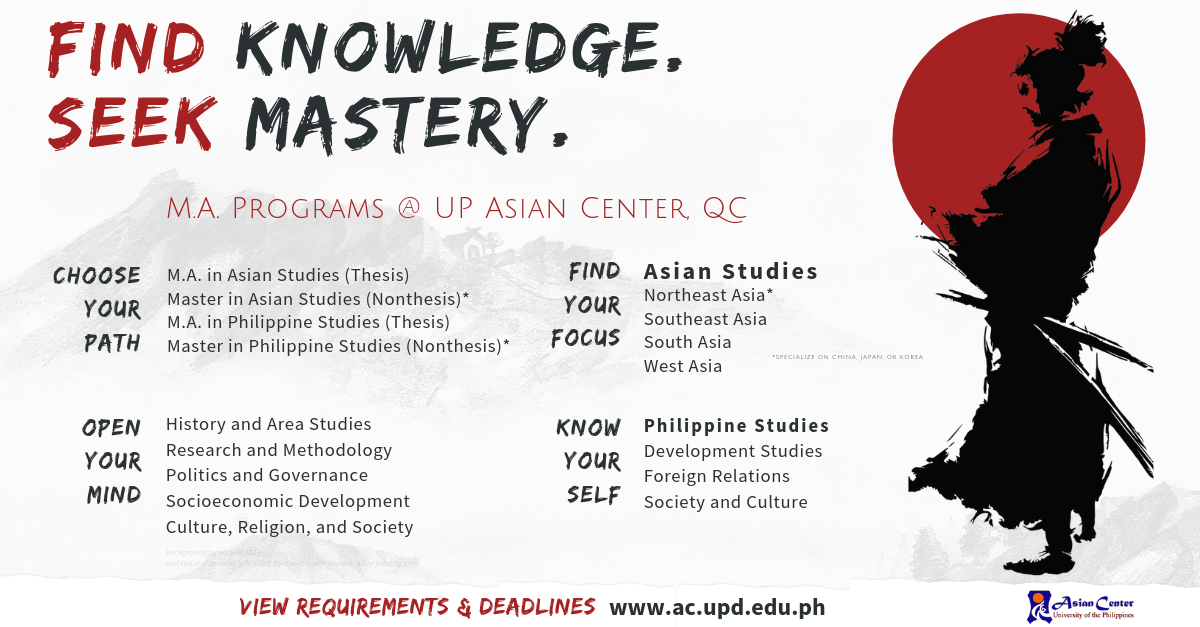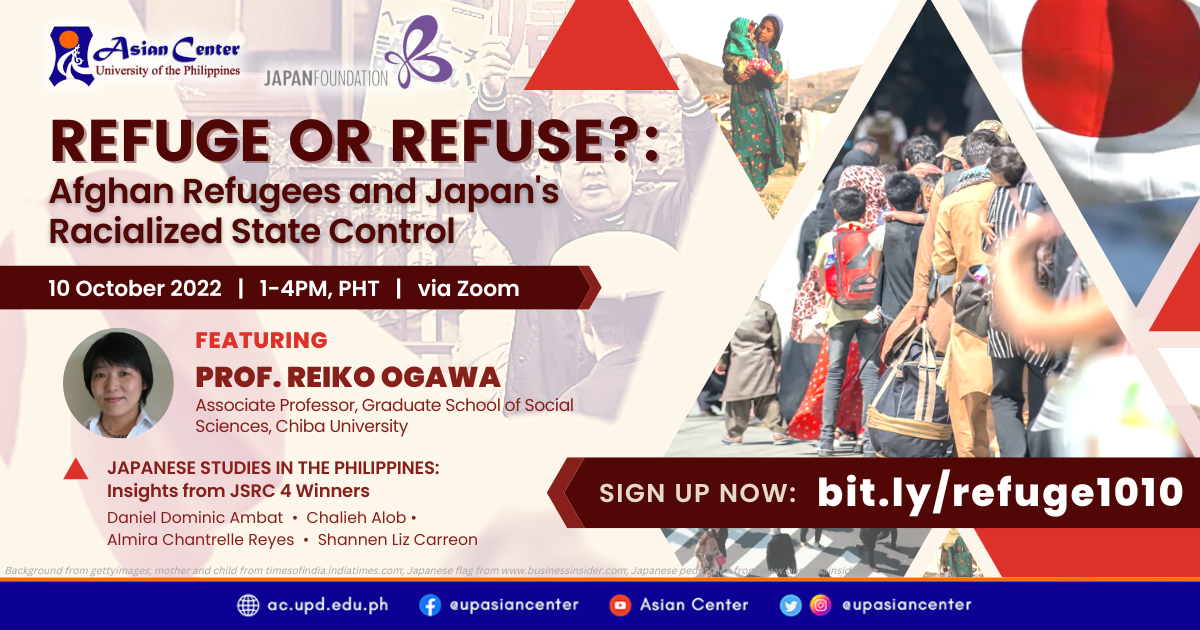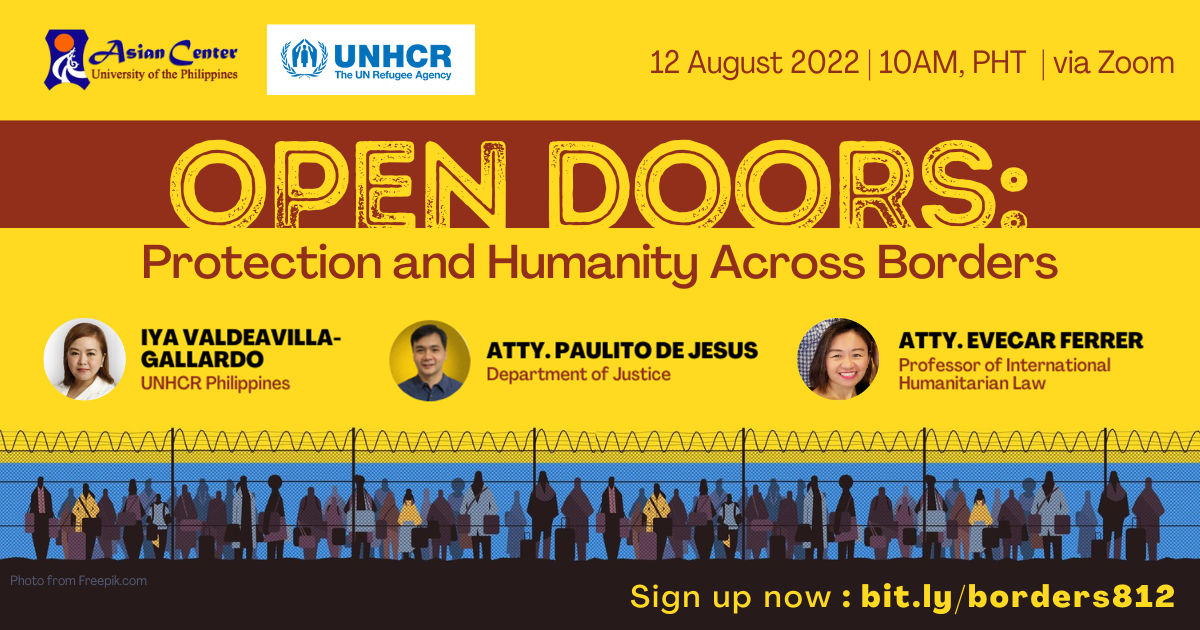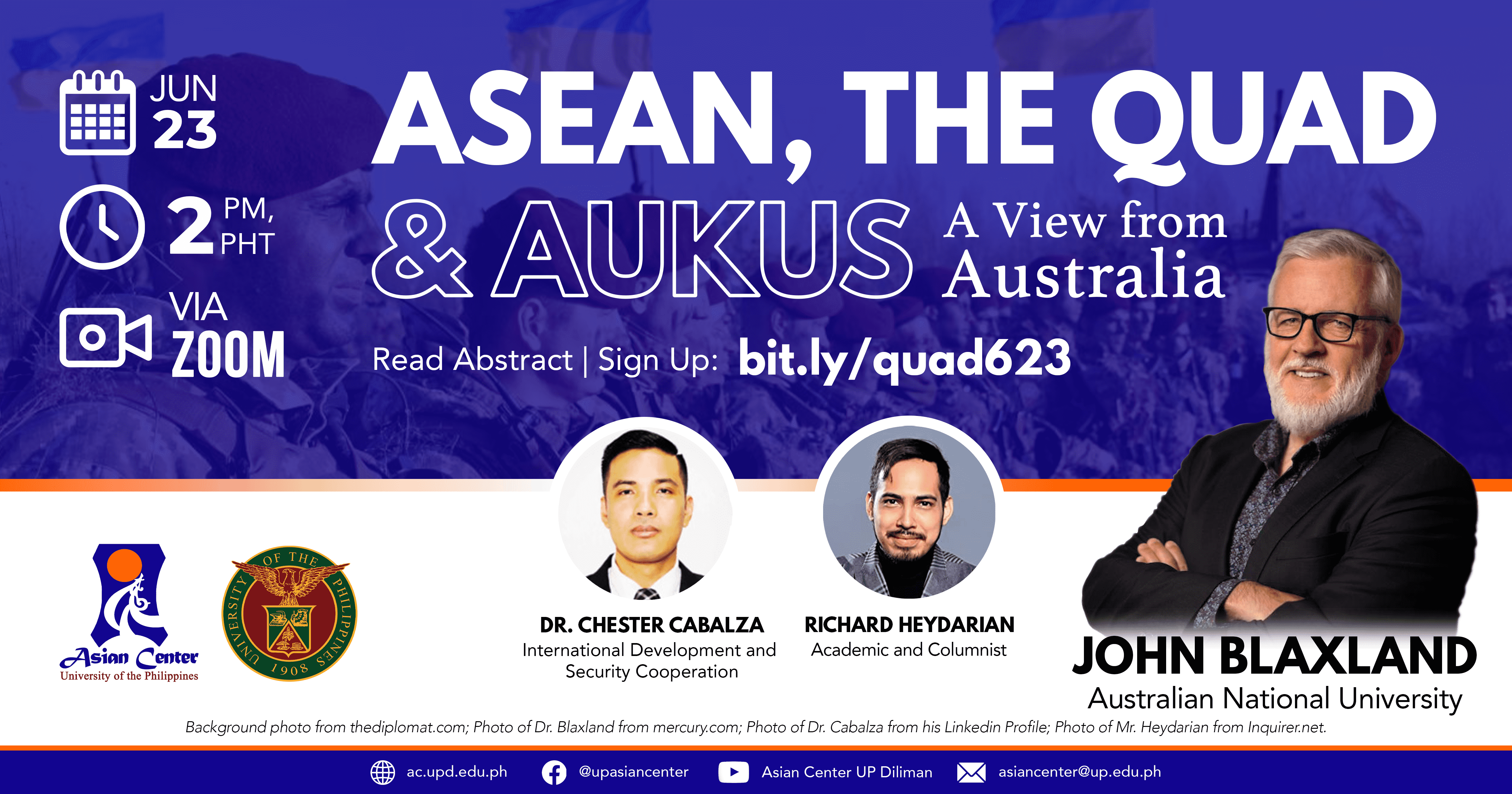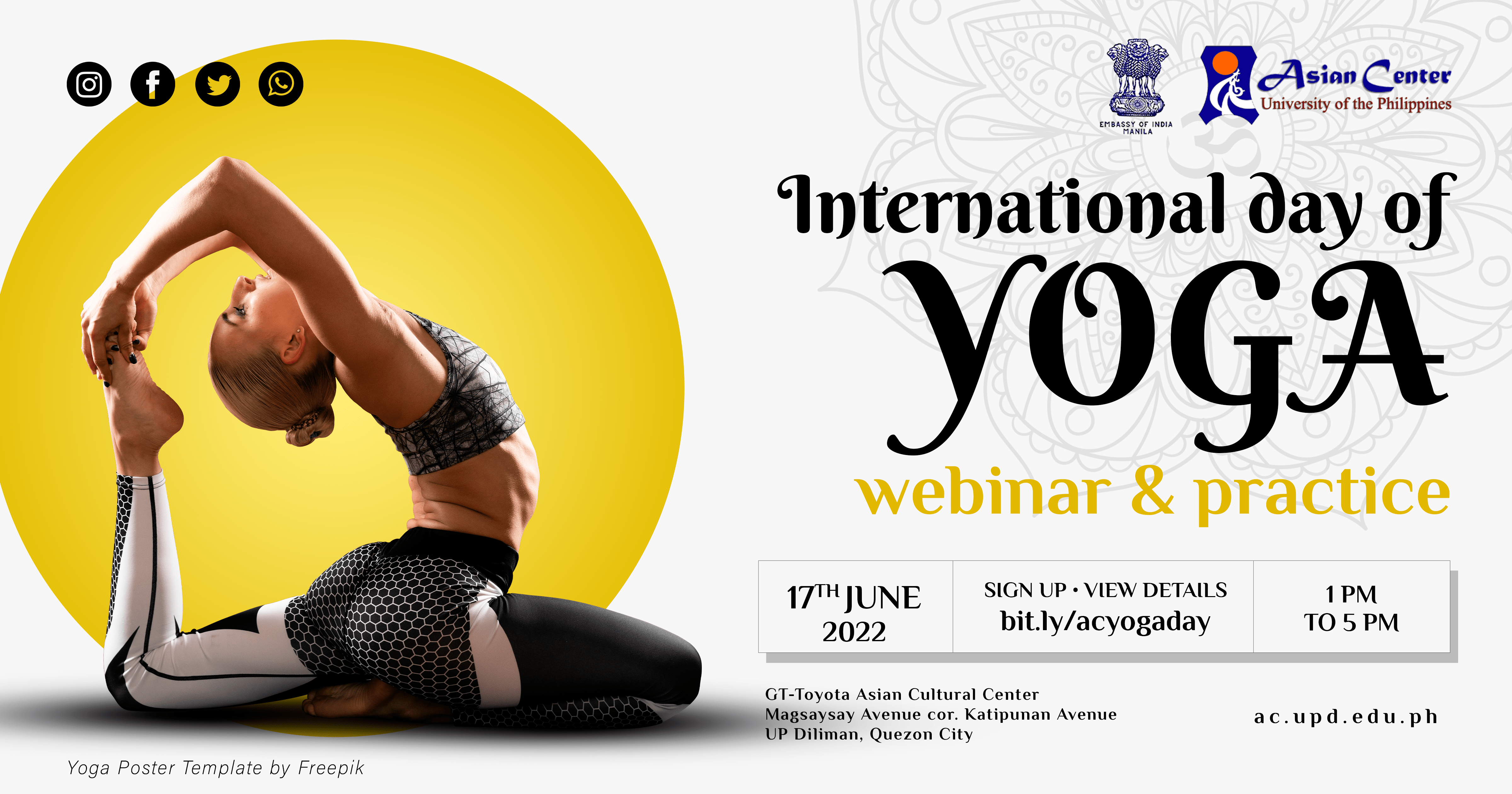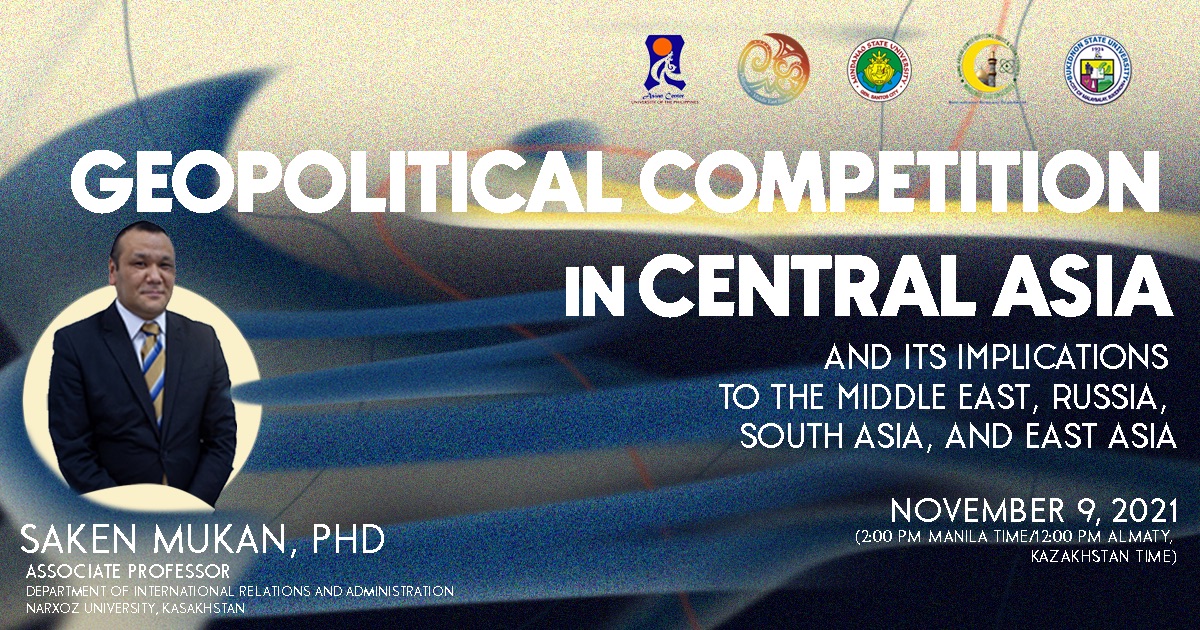
The UP Asian Center will be hosting a webinar via Zoom, “Geopolitical Competition in Central Asia and Its Implications to the Middle East, Russia, South Asia, and East Asia” on 9 November 2021, 2:00 pm–5:00 pm (Philippine Standard Time). The webinar is free and open to the public, but signing in to a free (basic) Zoom account is required.
Abstract
The ongoing celebration of the 30th anniversary for Central Asian five states (Kazakhstan, Uzbekistan, Kyrgyzstan, Tajikistan, Turkmenistan) since collapse of the USSR in 1991 during the COVID-19 makes the researchers, academia as well as experts on Central Asia having different, vague and contradictory approaches to and perceptions of the whole region. This question of misperception—either positive or negative—has always been debated among various international experts during 30 years of existence.
Since then, Central Asia has become a focus of external actors in enhancing their foreign policy tool implementations and gaining geopolitical benefits in terms of FDI, soft power, security guarantee, political stability etc. Were the Central Asian states ready for integration into a free market economy after the planned economy from the USSR? How did Central Asian states struggle for their ideology based national identity in a globalized world? What is the notion of “independence” in a Central Asian context? What are the incentives for them to be attractive to external powers?
Today, these questions are the main agenda for the region during the symbolic anniversary celebration and in redesigning public reforms followed by COVID-19 challenges. Finally, geopolitical competition in Central Asia and its implications to the other neighboring regions such as the Middle East, Russia, South Asia, and East Asia will be discussed in terms of best analytical cases and examples that Central Asia has experienced during its existence as an independent region and geopolitical entity.
The Speaker
Saken Mukan, PhD is an Associate Professor at the Department of International Relations and Administration, Narxoz University in Kazakhstan. He obtained his PhD in International Relations from Kazakh Ablai Khan University in 2015. His PhD thesis was focused on “National Interests in Oil and Gas Industry: international experience and Kazakhstan,” funded by Kazakhstani Ministry of Education and Science. View Full Profile.
VIEW REGISTRATION and IN-WEBINAR GUIDELINES (NEW!)
Organizers and Inquiries
This webinar is organized by the UP Asian Center, the Philippine-Middle East Studies Association (PMESA); the Department of International Relations, Mindanao State University Main Campus; Mindanao State University General Santos
The UP Asian Center offers an M.A. Program in Asian Studies with specialization on West Asia. Applications for the February 2022 intake are accepted until 19 November 2021.
For inquiries, please email This email address is being protected from spambots. You need JavaScript enabled to view it.
The UP Asian Center offers M.A. degrees in Asian Studies with four fields of specialization: Northeast Asia, Southeast Asia, South Asia, and West Asia. The Center also has an M.A. program in Philippine Studies that allows students to major in Philippine society and culture, Philippine foreign relations, or Philippine development studies. The Center offers a Ph.D. program in Philippine Studies in conjunction with the College of Arts and Letters and the College of Social Sciences and Philosophy. For an overview of these graduate programs, click here. The Asian Center also publishes Asian Studies: Journal of Critical Perspectives on Asia, the latest issue of which can be downloaded at the journal's website. For other news and upcoming events at the Asian Center, click here.




